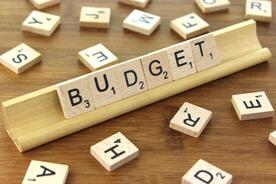Financial Literacy Tips

- Make a REAL budget
Write down all of your fixed expenses first. Include rent, cell phone/internet, insurance, and any other expenses that do not change from month to month.
-Next, write down the variable expenses; electricity, water, groceries, transportation, etc. Write down the maximum number you plan to spend on these items.
-Finally write down the variable expenses that are the easiest to cut, like eating out, memberships, cable, etc.
Look at how much you spend. Find places to make small cuts, $20 can make a huge difference. Start small, and adjust your budget monthly.
- Write down all financial details
Knowing this number will help you stay realistic with your budget and plan for your future.
- Be Realistic Understand that we are all human. It's ok to get a coffee or eat out. Make adjustments to your budget to help stay on track. It's important not to feel like one mistake derails your whole plan.

- Set up a savings account
- Put yourself first
Take a break from donating to groups, helping family, etc. It might seem selfish, but making yourself financially stable will help you and your family long term.

- Set goals for yourself
Small, attainable goals can help you stay motivated.
- Modify your budget
Understand that your budget is a living document that can change at any time.



